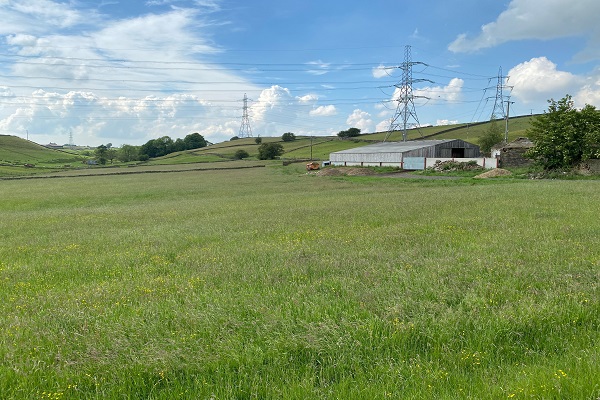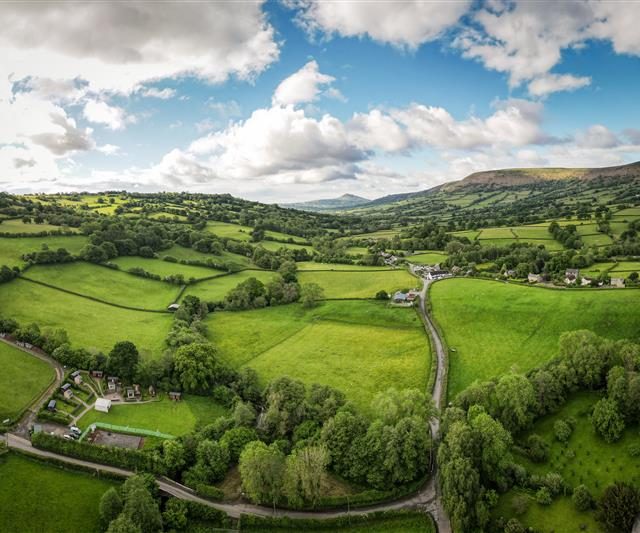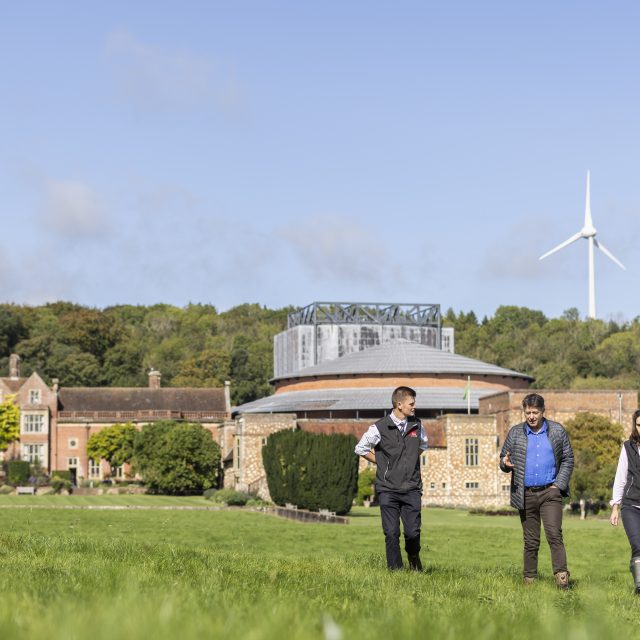The Great Grid Upgrade: What landowners need to know
Landowners and farmers are amongst those who could feel the biggest impact of the Great Grid Upgrade – the UK’s largest overhaul electricity infrastructure for generations.
The GGU involves 17 new major infrastructure projects designed to allow for cleaner and affordable energy to be carried from the site of production, such as offshore wind farms, straight to homes and businesses.
This is likely to bring challenges and opportunities for a large number of rural landowners.
For example, the modernisation of the electricity network – coupled with significant reforms to the grid connection process – is expected to create new opportunities for solar farms.
However, the new infrastructure projects are likely to involve significant disruption for landowners, as not only will they involve the installation of new electricity infrastructure, they will also require any existing cables and pylons across their land to be upgraded.
To minimise potential issues, a new Rights over Land for Electricity Infrastructure document has recently been published to encourage best practice and provide a focus on ensuring that the rights and interests of landowners are understood and respected.
Project locations under the GGU programme include:
- Norwich to Tilbury
- Bramford to Twinstead
- Chesterfield to Willington
- Weston Marsh to East Leicestershire
- Brinsworth to High Marnham
- Grain to Tilbury
- Yorkshire Green
- Grimsby to Walpole
- North Humber to High Marnham
Landowners who may be affected should familiarise themselves with the following five key points which also apply to infrastructure work relating to other utilities.
1. Take professional advice early
Utility and infrastructure providers pay reasonable professional fees so landowners should have no hesitation in appointing a land agent. Whether the provider wants to carry out maintenance on an existing electricity, water, sewer or gas pipeline, or more complex works such as installing a new electricity supply, pipeline or the construction of a road or rail track, professional advice is imperative.
Even routine maintenance or small repairs do not always run smoothly, frequently causing far greater levels of disturbance and inconvenience than initially anticipated.
Strutt & Parker is highly experienced in this work, making sure those affected receive the full advice and compensation package which they are entitled to. By taking advice early there may also be more opportunities to influence the design stage and reduce short- and long-term impacts on your property.
2. Know the specific rights and responsibilities of the third party
Most infrastructure projects follow a similar process but the statutory powers and rights available to third parties who carry out these works are very different. Survey works initially help determine whether the permanent works can take place. Preliminary works may be exercised such as hedgerow removal, boreholes or archaeology digs. A notice may be served, but sometimes landowner/occupier consents may be necessary, or a licence required.
Procedures can be different for temporary compounds and storage areas. Permanent works, like a new water pipeline, can be carried out by notice, but works such as the construction of a substation or reservoir may require a land purchase.
Third parties usually prefer to enter land or purchase it by agreement. The water industry in particular has very comprehensive rights of access compared to other providers who are more reliant upon consent. A hybrid scenario can be adopted depending on the works, but we can advise and make sure the correct procedures are followed.
3. Consider steps to mitigate both short- and long-term impacts
This is really important and will depend on when the works commence. Third parties will try to work around farming activities where this will reduce crop loss and surface damage claims but this is not always possible. Other losses requiring careful consideration are agri-environmental scheme payments which may need to be repaid or penalties may arise from the works. Where the works take longer or are delayed there can be additional impacts, so communication is key.
Accommodation works such as installing new fencing, alternative access provisions, water troughs and drainage should be discussed so these are clearly understood before works commence.
Longer term impacts include safeguarding the land for future development or other land use opportunities such as renewable energy, Biodiversity Net Gain or tree planting. In certain cases, it may be necessary to understand what rights are available to request for the infrastructure to be relocated in the future or to negotiate a lift and shift provision.
4. Keep accurate records and a diary
This is essential. Most infrastructure projects last many months and even years during which time personnel can change. A pre-entry photographic record of condition of the land should be made no matter the scale of the works. The availability of drones in particular means it is now easier to do this which provides invaluable evidence when negotiating a claim later down the line. The onus to prove loss is on the claimant, so we strongly advise the landowner/occupier to take photographs and keep records of activities at all stages.
Lost time is a legitimate head of claim category when looking at the compensation due. A claimant should keep an accurate diary of their time spent in meetings, telephone calls and emails with their adviser, the third party or their contractors. The movement of livestock to accommodate the works and additional travelling time when harvesting crops are also legitimate claims. We find that those who retain invoices, quotes and time records are in a much stronger negotiating position, with settlements often reached more quickly.
5. Understanding the procedures for compensation claims and reinstatement
Compensation aims to ensure the claimant is no worse off – so far as money can achieve this. Depending on the nature of the interests being acquired claims can involve land purchases, agreeing easements, wayleaves, or other arrangements. Interim claims may be appropriate.
There are standard heads of claim, but additional compensation is payable in certain cases. Settlements tend to be reached by negotiation, but legislation provides a fall-back mechanism.
Land reinstatement can be problematic depending on the damage caused, contractor availability and weather conditions. Once handed back, temporary fencing may remain in place to aid land recovery. It is important to know timings and responsibilities, with agreements for doing the work agreed in advance. There may be future maintenance liabilities for accommodation works to decide and damage, like drainage, may not be immediately apparent but should not be overlooked.
With subtle differences in the statutory rights available to utility providers, it is important professional advice is taken as soon as approached to ensure that your position is not prejudiced unnecessarily.
Claims can be complex and take time to resolve, so seek assistance and do not miss out on compensation that you are entitled to.
Strutt & Parker prepares claims for both landowners and occupiers, so if you would like to speak to a member of the team about such matters please contact Matthew Cornish.






